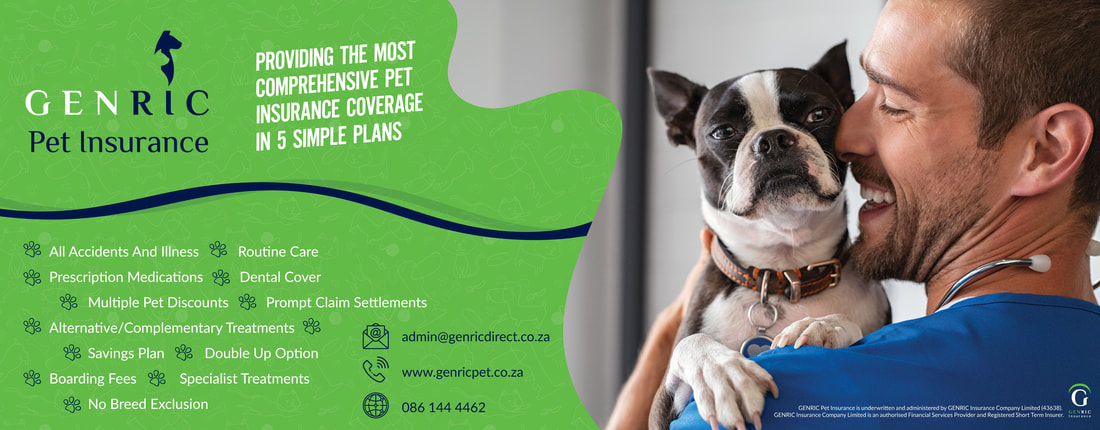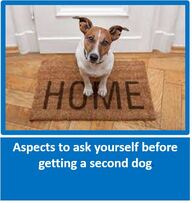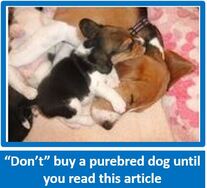Dog Food Storage Mistakes That Can Affect Health
by Scotty Valadao - Friends of the Dog
by Scotty Valadao - Friends of the Dog
 Pic - Free http://clipart-library.com/date-cliparts.html
Pic - Free http://clipart-library.com/date-cliparts.html
It is not unknown for dog food packets to have been contaminated, or to be recalled, and this we have no control over, other than ensuring we buy our food from a highly reputable dog food manufacturer.
However, we often forget that it is up to us to ensure that after purchasing that we do all we can to ensure the food remains safe for our beloved dog.
It just seems so simple - after bringing back your bag of dog food and opening it, you either seal it after use with the zip at the top of the bag, or empty it into another container and seal it.
However, this is not always enough to ensure your dogs safety - do take into account the following:-
1. Expiry Date
We should all be checking the expiry date on the packet of dog food before purchasing, and ensuring that we use within the stipulated time, however, what happens to that expiry date once the bag is opened? Odds are the expiry date may no longer valid, especially if the food is not stored correctly. If you purchase your kibble from a vet, then check with them the expiry date once the food is opened, or, alternatively get hold of the manufacturer.
2. Never leave your bag of food open.
Just as with human food, if we leave our dogs kibble exposed to air and humidity, the food can rapidly degrade, and you can have the risk of bacterial contamination and even mould, especially if the food is kept in a warm environment - always aim to keep it in a cool place - think of storing it as you would your own food.
The majority of the better quality foods come with a high quality zip seal designed to keep the food sealed and protected, so just ensure that it is sealed correctly after use.
The main reason to keep food in the original bag it came in, is that the top quality ones normally have an oil-resistant liner, which is specifically designed to retain flavour and keep the food fresh.
3.Keep your dog food in the home
Nowadays, as we seem to be moving to smaller houses and especially apartments or flats, space really can be a problem, but do try to find a way to store in the home, rather than in the garage or an outside hut, where the food will be exposed to insects and rodents and also, these places tend to be a lot warmer than inside the home, especially if an IBR roof, and are often places that can become damp.
For convenience, especially where space is at a premium, you could consider keeping the original sealed bag of dog food in another room, and just decanting enough for approximately a week at a time, which can be kept in the kitchen.
Alternatively, even though it is normally more expensive, rather consider buying a few smaller bags of food that are easier to store.
4.Decanting Dog Food
Plastic container initially sound like a great option to decant kibble into, however, depending on where they are kept, they can cause food to go off quicker, plus there is always the chance that any scratches in the lid, or body of the container can have bacteria.
If you are going to decant the food, then first and foremost the container must be clean and dry, and thoroughly washed before use, and also when it is empty. It must seal securely and also be kept where cool and dry.
A good idea is to take a picture of the barcode and expiry date and stick on top of your container, so that you have the expiry date on hand, and also if ever a recall of your brand of food, you will have the barcode. This also assists in the event of the dog becoming ill, you can give your vet all the necessary info relating to the food.
Additionally, never 'top up' existing stored food as over time these can go off. Rather finish off what is in the container, and then give the container a good clean and ensure dry before filling with new food.
4. Tinned Foods
We use safety guidelines when opening tins for ourselves, and on average, anything left over will be placed in a clean, dry container that seals correctly, and it is the same with our pets tinned food. As with human tinned food, don't leave an open can sitting on the kitchen counter - rather decant the balance immediately and, place in the fridge, or alternatively you can purchase one of the plastic lids to fit over the top. Do ensure that the tops are also well cleaned and no scraps of food left in the rim. Personally, we have a few of these tops for use, and put in the dishwasher when the tin is empty.
How long it can be kept in the fridge should be on the tin, and if not sure, or it does not state, then either phone your vet or the manufacturer. The average that we could determine, is about 3 days.
As with bags of dog food, unopened tins should be stored at room temperature, preferably in a cool cupboard.
If you end up doing what so many of us have done - forget to put the tinned food away and leave it on the counter for a few hours - rather play it safe and place in a sealed plastic bag and in the dustbin - first ensuring that your dog cannot get in the dustbin!
5. Food Bowls
Just as we wash our own plates and utensils, wash your dog's food and water bowls on a daily basis, even if you have a Fido, that licks it so clean it looks spotless - it's not - a good way for bacteria to build up. If you have a dishwasher, then pop in the bowls after use, and have a 2nd water bowl available, so that your dog always has clean, fresh water.
6. Children & Feeding Dogs
By all means, get your kids involved in feeding the dog (ensuring that there is no resource guarding of same, and done under supervision and in the correct manner),but do supervise the children!
However, we often forget that it is up to us to ensure that after purchasing that we do all we can to ensure the food remains safe for our beloved dog.
It just seems so simple - after bringing back your bag of dog food and opening it, you either seal it after use with the zip at the top of the bag, or empty it into another container and seal it.
However, this is not always enough to ensure your dogs safety - do take into account the following:-
1. Expiry Date
We should all be checking the expiry date on the packet of dog food before purchasing, and ensuring that we use within the stipulated time, however, what happens to that expiry date once the bag is opened? Odds are the expiry date may no longer valid, especially if the food is not stored correctly. If you purchase your kibble from a vet, then check with them the expiry date once the food is opened, or, alternatively get hold of the manufacturer.
2. Never leave your bag of food open.
Just as with human food, if we leave our dogs kibble exposed to air and humidity, the food can rapidly degrade, and you can have the risk of bacterial contamination and even mould, especially if the food is kept in a warm environment - always aim to keep it in a cool place - think of storing it as you would your own food.
The majority of the better quality foods come with a high quality zip seal designed to keep the food sealed and protected, so just ensure that it is sealed correctly after use.
The main reason to keep food in the original bag it came in, is that the top quality ones normally have an oil-resistant liner, which is specifically designed to retain flavour and keep the food fresh.
3.Keep your dog food in the home
Nowadays, as we seem to be moving to smaller houses and especially apartments or flats, space really can be a problem, but do try to find a way to store in the home, rather than in the garage or an outside hut, where the food will be exposed to insects and rodents and also, these places tend to be a lot warmer than inside the home, especially if an IBR roof, and are often places that can become damp.
For convenience, especially where space is at a premium, you could consider keeping the original sealed bag of dog food in another room, and just decanting enough for approximately a week at a time, which can be kept in the kitchen.
Alternatively, even though it is normally more expensive, rather consider buying a few smaller bags of food that are easier to store.
4.Decanting Dog Food
Plastic container initially sound like a great option to decant kibble into, however, depending on where they are kept, they can cause food to go off quicker, plus there is always the chance that any scratches in the lid, or body of the container can have bacteria.
If you are going to decant the food, then first and foremost the container must be clean and dry, and thoroughly washed before use, and also when it is empty. It must seal securely and also be kept where cool and dry.
A good idea is to take a picture of the barcode and expiry date and stick on top of your container, so that you have the expiry date on hand, and also if ever a recall of your brand of food, you will have the barcode. This also assists in the event of the dog becoming ill, you can give your vet all the necessary info relating to the food.
Additionally, never 'top up' existing stored food as over time these can go off. Rather finish off what is in the container, and then give the container a good clean and ensure dry before filling with new food.
4. Tinned Foods
We use safety guidelines when opening tins for ourselves, and on average, anything left over will be placed in a clean, dry container that seals correctly, and it is the same with our pets tinned food. As with human tinned food, don't leave an open can sitting on the kitchen counter - rather decant the balance immediately and, place in the fridge, or alternatively you can purchase one of the plastic lids to fit over the top. Do ensure that the tops are also well cleaned and no scraps of food left in the rim. Personally, we have a few of these tops for use, and put in the dishwasher when the tin is empty.
How long it can be kept in the fridge should be on the tin, and if not sure, or it does not state, then either phone your vet or the manufacturer. The average that we could determine, is about 3 days.
As with bags of dog food, unopened tins should be stored at room temperature, preferably in a cool cupboard.
If you end up doing what so many of us have done - forget to put the tinned food away and leave it on the counter for a few hours - rather play it safe and place in a sealed plastic bag and in the dustbin - first ensuring that your dog cannot get in the dustbin!
5. Food Bowls
Just as we wash our own plates and utensils, wash your dog's food and water bowls on a daily basis, even if you have a Fido, that licks it so clean it looks spotless - it's not - a good way for bacteria to build up. If you have a dishwasher, then pop in the bowls after use, and have a 2nd water bowl available, so that your dog always has clean, fresh water.
6. Children & Feeding Dogs
By all means, get your kids involved in feeding the dog (ensuring that there is no resource guarding of same, and done under supervision and in the correct manner),but do supervise the children!
- Make sure that the kids measure out the food correctly, to avoid over, or under feeding.
- Show them how to wash the bowls after
- Get them to always wash their own hands in warm, soapy water when finished.





